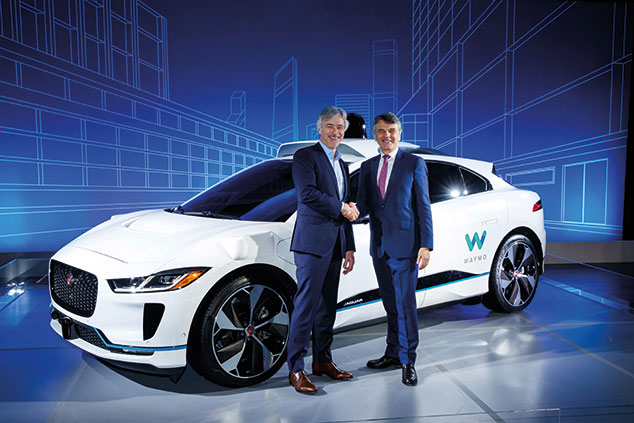
What has happened?
The UK’s car industry – one of the bright spots of the country’s post-crisis recovery – now looks to be in deep trouble, rocked by a triple whammy of Brexit worries, a global slowdown, and underlying long-term changes in the market for cars. The latest monthly figures available, for the year to November 2018, were a shocking wake-up call to the sector. Production slumped by a fifth (19.6%) compared with a year earlier. And the decline was even more marked in vehicles destined for export (accounting for 80% of UK-made cars).
Production of exported vehicles fell 22.8% year-on-year to 105,221 – the fifth consecutive month of decline. Meanwhile, cars for the home market fell 1.9% year-on-year, dropping to 24,276. Last week Jaguar Land Rover (JLR) said it would cut 4,500 jobs, about 10% of total workforce. Ford announced job losses in a Europe-wide “reset” that is likely to mean around 1,000 jobs going at Bridgend.
Is this mostly about Brexit?
No, though it hasn’t helped. Investment in the UK car industry has fallen dramatically since the 2016 Brexit referendum, from about £2.5bn in 2015 to £1.1bn in 2017 and less again last year (even as revenues continued to rise to a record £82bn in 2017).
The industry pins the blame for that investment slump over uncertainty about the UK’s future trading relationship with the EU; it believes a no-deal Brexit would be a disaster. Indeed, JLR’s chief executive, Ralf Speth, reckons it would make car manufacturing in this country “unviable”.
Why is that?
The UK car market is heavily dependent on exports: more than eight in ten cars made here are sold abroad, with more than half of those selling in Europe. At the same time more than half of the parts that go into UK-assembled cars are imported from the continent. Thus tariffs, border checks and other delays all pose a massive threat to profitable car-making here.
“Thousands of jobs in British car factories and supply chains depend on free and frictionless trade with the EU,” says Mike Hawes of the Society of Motor Manufacturers and Traders. If there is a no-deal Brexit, “the consequences would be devastating”. Even so, most commentators don’t think Brexit is the biggest issue.
What is the biggest issue, then?
A wider cyclical downturn in the global car industry, made worse by a sudden fall-off in demand in China, the world’s most profitable market – and all coinciding with technological disruption and uncertainty. It’s not just in Britain where car makers are worried about the prospect of “car-mageddon”. About £100bn was wiped off the value of car firms globally last year.
General Motors is shedding 14,700 jobs and closing five factories in North America. Even in Germany there’s worry about the outlook for its world-leading premium car makers in a sector where the combustion engine (and diesel in particular) is a thing of the past – the future is in electricity, electronic engineering and data-processing.
Why is China so important?
The slowdown there has hit JLR, Britain’s biggest car maker, especially hard. For years, the firm has relied on what Bernstein analysts describe as “super-normal Chinese profits” from the country’s growing middle-class.
But last year, as Chinese consumers tightened spending on signs of a slowdown, car sales slumped – down 22% overall last year, increasing to 42% in December. The downturn, together with JLR’s decision to invest heavily in new generation “clean” diesel and expand aggressively into the mid-range saloon sector – where its sales have been disappointing – have left it exposed. Its Castle Bromwich site near Birmingham was put on a three-day week in the run-up to Christmas, and some analysts have predicted it could soon face closure.
Any grounds for optimism?
Yes. Despite sharp share price falls last year, sales are holding up pretty well. Last week the world’s biggest car maker, Volkswagen, reported record sales last year, and it expects a modest rise this year. In the US and Europe, sales are holding up, and the continuing shift in consumer tastes towards SUVs and crossovers – rather than saloons – bodes well for profitability. Indeed, it’s odd the car industry is shedding workers at the top of the cycle when sales are strong.
So what is going on?
According to analysts, the cost-cutting is part of an effort to protect short-term profits in the face of technological and social factors that mean we may have passed “peak car”. Car makers’ share prices fell not principally due to fears about short-term earnings, but because of the long-term structural issues casting a shadow over the industry.
Few believe all the existing big players – VW, Toyota, the Renault alliance, General Motors and Ford – will prove equal to the challenges posed by electrification, autonomous vehicles and the rise of ride-hailing and subscription models in place of ownership. The likely beneficiaries, says Professor Karel Williams of Manchester Business School, will not be the car makers, but data companies such as Google, and “mobility providers” such as Uber.
What can car makers do?
Some are already cosying up to the tech giants. Toyota has poured $500m into a driverless car partnership with Uber. JLR has unveiled a long-term tie-up with Google-owned Waymo. The challenge, says Rana Foroohar in the Financial Times, is to understand the car industry’s “iPhone moment” in terms of value migrating from hardware to software.
Currently, about 90% of a car lies in the hardware. But Morgan Stanley thinks that, in autonomous vehicles, only 40% will lie in the hardware, 40% in the software, and 20% in the content that streams into it. Rather like the once-dominant Nokia – undone by the smartphone revolution – car makers who can’t get their heads around this shift will not be around for ever.